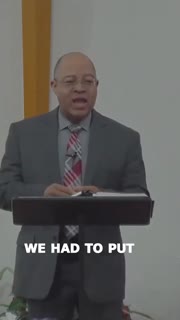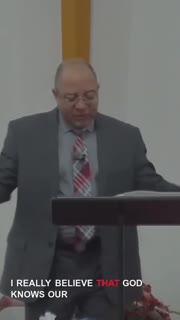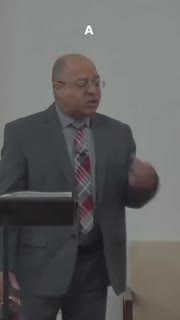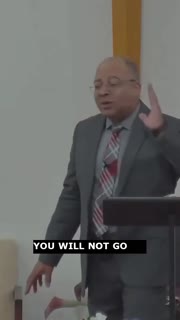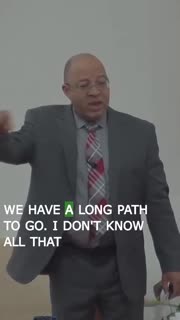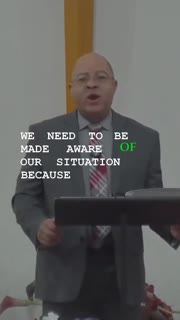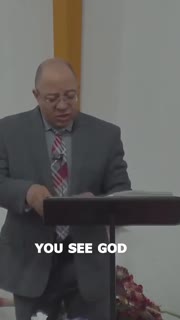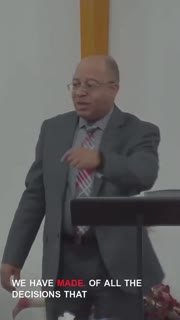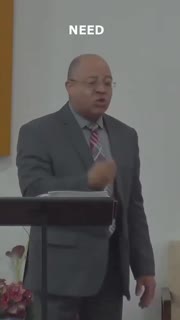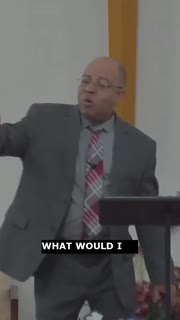Embracing Transformation: Dying to Self for Christ
Summary
### Summary
This week, we celebrated a successful Vacation Bible School, which was a testament to the dedication and hard work of our volunteers. It was a time of joy and learning for the children, and it reminded us of the importance of investing in the next generation. Reflecting on this, we turned to Acts 9, focusing on the conversion of Saul, who later became the Apostle Paul. Saul's journey to Damascus was a pivotal moment where he encountered Jesus and was transformed from a persecutor of Christians to a devoted follower of Christ.
The central theme of today's message is "Dying to Self." Saul's experience teaches us that to build a life for God, we must start by dying to our old selves. Saul thought he was doing the right thing by persecuting Christians, but he was actually fighting against God. It wasn't until he was struck blind and had three days to reflect that he realized his need for a new direction. This period of blindness was a time for Saul to understand his spiritual blindness and his need for Jesus.
We all have moments where we think we are in control, but God often intervenes to show us the right path. Just as Saul had to let go of his old life to embrace a new one in Christ, we too must surrender our desires and plans to God. This surrender is not a one-time event but a daily commitment to follow Jesus. Saul's transformation was marked by his willingness to ask, "Lord, what wilt thou have me to do?" This question signifies a heart ready to obey and serve God.
As we reflect on our own lives, we must recognize that our disconnect is not with people but with God. We cannot blame others for our spiritual state; it is a personal responsibility. Saul's story encourages us to take time to reflect, understand our spiritual condition, and make a conscious decision to follow Christ wholeheartedly. This commitment will prepare us for the challenges ahead and ensure that we are building our lives on a solid foundation.
### Key Takeaways
1. The Importance of Reflection: Saul's three days of blindness were crucial for his transformation. It was a time for him to reflect on his actions and realize his need for Jesus. We too need moments of reflection to understand our spiritual state and seek God's guidance. [58:13]
2. Dying to Self: To build a life for God, we must die to our old selves. This means letting go of our desires, plans, and ego, and surrendering to God's will. Saul's question, "Lord, what wilt thou have me to do?" exemplifies a heart ready to obey and serve God. [49:18]
3. Personal Responsibility: Our spiritual disconnect is between us and God, not others. We cannot blame our circumstances or people around us for our spiritual state. Saul had to realize that his actions were his own, and he needed to take responsibility for them. [01:10:49]
4. God's Compassion and Guidance: God intervenes in our lives not to condemn us but to guide us back to Him. Saul's encounter with Jesus on the road to Damascus was a moment of divine intervention that changed his life. God shows us our sins and offers us a path to redemption. [55:04]
5. Commitment to Follow Christ: Saul's transformation was marked by his willingness to follow Jesus wholeheartedly. This commitment is essential for us as well. We must decide to serve God daily, not just occasionally, and be ready to face the challenges that come with this commitment. [01:18:10]
### YouTube Chapters
[0:00] - Welcome
[42:25] - Vacation Bible School Reflections
[43:37] - Saul's Encounter on the Road to Damascus
[45:16] - The Importance of Dying to Self
[46:11] - Saul's Misguided Zeal
[47:37] - God's Intervention in Our Lives
[48:33] - Starting at the Right Place
[49:18] - Personal Reflection and Responsibility
[52:28] - Awareness of Our Spiritual State
[55:04] - God's Compassion and Guidance
[58:13] - The Role of Reflection in Transformation
[01:10:49] - Personal Responsibility in Spiritual Growth
[01:18:10] - Commitment to Follow Christ
[01:20:43] - Call to Prayer and Reflection
[01:26:20] - Acknowledging God's Sovereignty
[01:27:37] - Announcements and Closing Remarks
Study Guide
### Bible Reading
- Acts 9:3-9 (KJV): "And as he journeyed, he came near Damascus: and suddenly there shined round about him a light from heaven: And he fell to the earth, and heard a voice saying unto him, Saul, Saul, why persecutest thou me? And he said, Who art thou, Lord? And the Lord said, I am Jesus whom thou persecutest: it is hard for thee to kick against the pricks. And he trembling and astonished said, Lord, what wilt thou have me to do? And the Lord said unto him, Arise, and go into the city, and it shall be told thee what thou must do. And the men which journeyed with him stood speechless, hearing a voice, but seeing no man. And Saul arose from the earth; and when his eyes were opened, he saw no man: but they led him by the hand, and brought him into Damascus. And he was three days without sight, and neither did eat nor drink."
### Observation Questions
1. What was Saul's initial reaction when he encountered the light from heaven on his way to Damascus? ([43:37])
2. How did Saul's companions react to the voice they heard during Saul's encounter with Jesus? ([44:01])
3. What specific instructions did Jesus give to Saul after revealing Himself? ([44:01])
4. How long was Saul without sight, and what did he do during this period? ([44:27])
### Interpretation Questions
1. What does Saul's question, "Lord, what wilt thou have me to do?" reveal about his state of mind and heart at that moment? ([44:01])
2. How does Saul's period of blindness symbolize his spiritual condition before encountering Jesus? ([44:27])
3. In what ways does Saul's transformation illustrate the concept of "dying to self"? ([45:16])
4. How does the sermon suggest that personal responsibility plays a role in our spiritual growth? ([01:10:49])
### Application Questions
1. Reflect on a time when you felt in control of your life but later realized you were on the wrong path. How did God intervene, and what changes did you make? ([47:09])
2. Saul's transformation began with a period of reflection and blindness. How can you incorporate regular moments of reflection to assess your spiritual state and seek God's guidance? ([58:13])
3. The sermon emphasizes the importance of dying to self daily. What are some specific desires, plans, or ego-driven actions you need to surrender to God? ([49:18])
4. Personal responsibility is crucial in our spiritual journey. How can you take ownership of your spiritual growth and avoid blaming others for your spiritual state? ([01:10:49])
5. Saul's willingness to ask, "Lord, what wilt thou have me to do?" signifies a heart ready to obey. What steps can you take to cultivate a heart that is always ready to follow God's will? ([44:01])
6. Reflect on God's compassion and guidance in your life. How has God shown you your sins and offered you a path to redemption? ([55:04])
7. Commitment to follow Christ is a daily decision. What practical steps can you take to ensure that you are building your life on a solid foundation in Christ? ([01:18:10])
Devotional
Day 1: The Power of Reflection
Description: Saul's three days of blindness were a transformative period in his life. During this time, he was forced to confront his actions and recognize his spiritual blindness. This period of reflection allowed Saul to understand his need for Jesus and set the stage for his conversion. Similarly, we need moments of reflection in our lives to assess our spiritual state and seek God's guidance. Taking time to reflect helps us to realign our lives with God's will and prepares us for the journey ahead. [58:13]
Acts 9:8-9 (ESV): "Saul rose from the ground, and although his eyes were opened, he saw nothing. So they led him by the hand and brought him into Damascus. And for three days he was without sight, and neither ate nor drank."
Reflection: Take a moment today to reflect on your spiritual journey. Are there areas in your life where you feel spiritually blind? Ask God to reveal these areas to you and guide you towards His light.
Day 2: Surrendering to God's Will
Description: To build a life for God, we must die to our old selves. This involves letting go of our desires, plans, and ego, and surrendering to God's will. Saul's question, "Lord, what wilt thou have me to do?" exemplifies a heart ready to obey and serve God. This surrender is not a one-time event but a daily commitment to follow Jesus. By asking God what He wants us to do, we open ourselves to His guidance and allow Him to shape our lives according to His purpose. [49:18]
Galatians 2:20 (ESV): "I have been crucified with Christ. It is no longer I who live, but Christ who lives in me. And the life I now live in the flesh I live by faith in the Son of God, who loved me and gave himself for me."
Reflection: What is one area of your life where you find yourself holding back from surrendering to Jesus? What would surrendering this area to Him actually look like in terms of daily habits?
Day 3: Taking Personal Responsibility
Description: Our spiritual disconnect is between us and God, not others. We cannot blame our circumstances or the people around us for our spiritual state. Saul had to realize that his actions were his own, and he needed to take responsibility for them. This realization is crucial for our spiritual growth. We must acknowledge our own role in our spiritual condition and take steps to address it. By taking personal responsibility, we can begin to make changes that align our lives with God's will. [01:10:49]
James 1:14-15 (ESV): "But each person is tempted when he is lured and enticed by his own desire. Then desire when it has conceived gives birth to sin, and sin when it is fully grown brings forth death."
Reflection: Reflect on a recent situation where you felt spiritually disconnected. How did your own actions or attitudes contribute to this feeling? What steps can you take to reconnect with God?
Day 4: Embracing God's Compassion and Guidance
Description: God intervenes in our lives not to condemn us but to guide us back to Him. Saul's encounter with Jesus on the road to Damascus was a moment of divine intervention that changed his life. God shows us our sins and offers us a path to redemption. His compassion and guidance are always available to us, even when we stray from His path. By embracing God's compassion, we can find the strength to change and follow His guidance towards a better life. [55:04]
Isaiah 30:21 (ESV): "And your ears shall hear a word behind you, saying, 'This is the way, walk in it,' when you turn to the right or when you turn to the left."
Reflection: Think of a time when you felt God's guidance in your life. How did you respond to it? Are there areas in your life where you need to be more open to His guidance today?
Day 5: Committing to Follow Christ
Description: Saul's transformation was marked by his willingness to follow Jesus wholeheartedly. This commitment is essential for us as well. We must decide to serve God daily, not just occasionally, and be ready to face the challenges that come with this commitment. Following Christ requires dedication and perseverance, but it also brings immense joy and fulfillment. By committing to follow Jesus, we build our lives on a solid foundation and prepare ourselves for the journey ahead. [01:18:10]
Luke 9:23 (ESV): "And he said to all, 'If anyone would come after me, let him deny himself and take up his cross daily and follow me.'"
Reflection: What does it mean for you to take up your cross daily and follow Jesus? Identify one specific action you can take today to strengthen your commitment to Christ.
Quotes
### Quotes for outreach
1. "We have to put in some prayer, some labors. We had to work together. But those are the times that kids remember. And God can use that time. And how do I know that? Because I grew up in Sunday school. And as I went through high school, I saw different ones giving themselves. Now I know how much they had to give themselves to help me out. I want to be doing the same thing for our kids also." [43:10] (20 seconds)
2. "I really believe that God knows our hearts and our mind. And God is dealing with us. Just go ahead and let go and let God. And open up our heart to what God wants to do in our life." [48:33] (10 seconds)
3. "We see a God that just wants to help us. We see a God that called out to him and let him know you're going down the wrong path. The wrong people are leading you. The wrong spirit is guiding you. The wrong thoughts in your mind. God let him know you're going the wrong way. Why persecutest thou me? Can you hear the compassion of God?" [55:04] (18 seconds)
4. "You will not go to hell and not know why you're going to hell. When you split hell and you're sitting there, you're going to know why you're going to hell. You've got to go past my love. You've got to go past the Tucker's love. You've got to go past the church's love. And more importantly, you've got to go past the love of God before you get to hell." [01:08:26] (19 seconds)
5. "We have a long path to go. I don't know all that we have to do for God. I know we had a good time at Vacation Bible School. I know we've got a Baptist school rally coming up. I know we've got revivals. I know some of the guys said we want to do some things for the men. I know different ones have a plan for the ladies and going out and doing things. We have a lot of work to do. You need to establish it right now. Are you in or are you out?" [01:18:10] (22 seconds)
### Quotes for members
1. "We need to be made aware of our situation. Because there's a lot of times we thought we were doing okay when we're out there in the world. And before we came to God, we thought we were doing okay. We had friends. We had money. We had cars. There were people we liked and all this. And we thought we were doing okay. Saul thought he was doing okay. He had the Pharisees in his pockets. There were people praising his name. There were those that were telling him he's doing a great job." [49:18] (30 seconds)
2. "You see, God took action. And God met him on the road to Damascus. And it was time for him to begin this new life. And as he began to begin this new life, he had to start at the right place. And why was this so important? There was going to be a lot of things coming up against Paul. He needed a reality in God. And if you don't have a right place to start at, then you're just going to go through the motions." [48:04] (22 seconds)
3. "We are the sum total of all the decisions that we have made. Paul was sitting here, or Saul was sitting here for three days and three nights, and all that he was going through. And that silent reflection. And beginning to realize something. He couldn't blame anybody else. The problem was between him and God. Sometimes we think our problems were our mom or dad. My sisters drove me crazy, and that's why I did what I did. My brothers drove me crazy." [01:10:49] (27 seconds)
4. "You need to take that time and realize how bad you were before God. There's so many times I hear people say, I'm not a bad, I've never robbed a bank. I've never beat my girlfriends. I've never stolen a car. I'm not that bad. How many of you realize we were that bad before we came to God? We were that bad. It shows us here that by one man's sin into the world and death by sin and so death has been all men. Why? Because all have sinned." [01:07:32] (33 seconds)
5. "He said, Lord, what would I have me to do? How many of you realized when you came to God that you had a duty to perform? You no longer belong to yourself. You no longer belong. You no longer belong to do whatever you want to do. Before, if you wanted to go rip and run the streets, do all that you want to do. You had that. I can do whatever I want to do. Now, on the other side, some of us thought we could say whatever we wanted to say." [01:15:44] (20 seconds)
